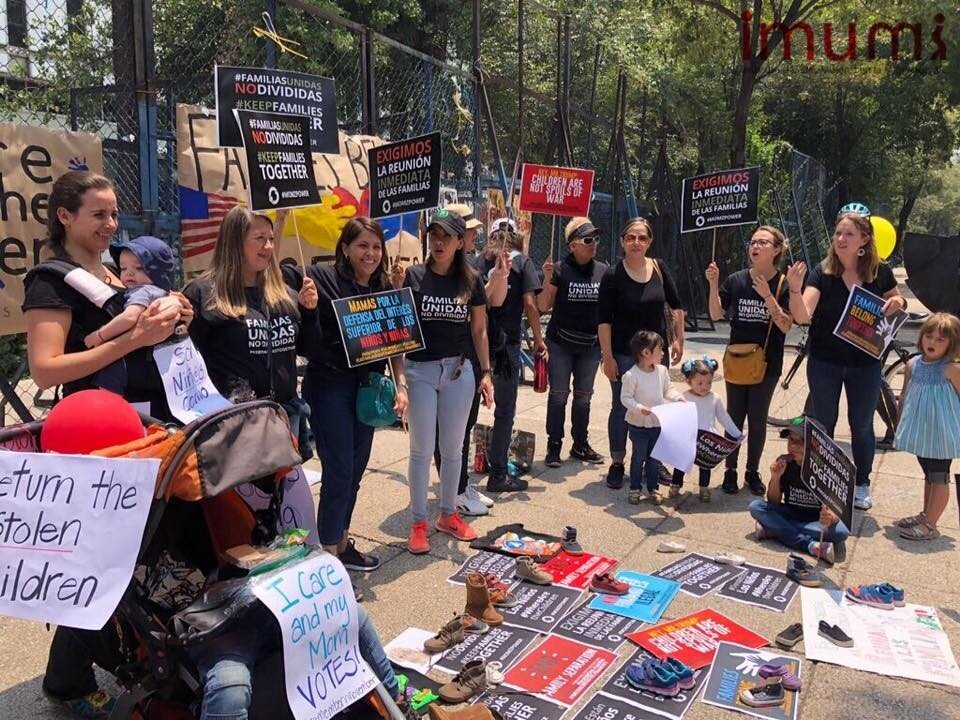By Ana Godinez | Project Leader
"The road to awareness is long... Understanding and sharing that a plate of food and water are important, they save lives, but they are not enough, it is necessary to understand the origin, humanization, accompaniment, a smile, good treatment. We have also strengthened the processes of response, security, and accompaniment for rural women, "defenders" who offer advice and hospitality from their communities to migrants."
Mujeres Rurales de la Frontera Sur (MRFS).
In recent decades we have heard a lot that Mexico is experiencing a "migration crisis". However, this concept arises from the governments' lack of understanding of the changes in migratory flows. In the past, people who migrated were mostly men of working age who moved mainly for economic reasons. Today, these flows are largely composed of people seeking refuge, entire families, adolescents, and children traveling alone or in caravans (Imaz, 2023).
Re-understanding the migratory population as people seeking or requesting refuge instead of as migration only for economic purposes, allows us to rethink their conditions of extreme vulnerability (Imaz, 2011), especially those of children, women, and people with disabilities or those of sexual diversity. In this way, it is possible to propose policies that truly address the causes not only of a migration crisis, but also of a humanitarian crisis.
During these months, Fondo Semillas financed 17 organizations that work with the migrant population, reaching 2,342 girls, adolescents, women, and transgender people*. The organizations increased the knowledge of these groups about their rights through different strategies such as the implementation of awareness-raising workshops in shelters and other community spaces, the provision of orientation services, the dissemination of information on mobility and health through social networks, and the organization of forums and conferences.
The Instituto para las Mujeres en Migración (IMUMI) conducted workshops in Mexico City for 98 children and adolescents. Fronterizas made a map of institutions that offer specialized services for migrants and distributed it among the migrant population in Tapachula, Chiapas. MRFS manages a community dining room that serves approximately 60 migrants every month. In this space they also implement workshops for reflection, artistic expression, and personal and collective care, as well as recreational activities aimed at children.
The 17 organizations also expanded or improved the services they provide to promote the integration of migrants in transit or arrival communities. Initially, the funded groups cover basic needs such as food, health and lodging, and then continue with legal advice, legal representation or safe transportation services. They also promote migrants' rights to education, recreation, communication and information, among others.
“Thanks to the support of Fondo Semillas, we started Spanish classes for migrant adolescents.”
(Espacio Migrante).
IMUMI offers legal advice and accompaniment; Iniciativas para el Desarrollo Humano (IDEHU) provides advice on educational issues and regularizes children and adolescents on a weekly basis, in addition to having participated in the organization of the IV Mesoamerican Youth Meeting "Identities, Resistance and Forced Displacement". Migrar es Vivir and Caminantas accompany the process of revalidation of studies. MRFS provides safe spaces where migrants can stay, but also express themselves, make decisions and share experiences among peers.
“It is very nice how their faces change from being sad and scared, they leave relaxed and happy. Karina is Honduran and has five children. Her husband died in Tegucigalpa, a victim of organized crime. Thanks to the support of Mujeres Rurales de la Frontera Sur, she settled in Mexico and is now in Canada as a refugee, hoping to build a better life for herself and her children."
(MRFS).
One of the most important achievements is related to the actions that organizations carry out with local institutions. For example, as a result of IMUMI's work, six organizations changed their practices in favor of the rights of children, women, and trans* persons in mobility. This organization trained authorities in the care of migrant children; in addition to accompanying the Systems for the Integral Protection of Children and Adolescents of Veracruz and Tabasco in the development of their Protection Route.
On the other hand, 108 women and girls increased their participation and influence in decision-making processes, thanks to the work performed by the organizations. An example of this is what IDEHU is doing by promoting that four migrant women can accompany educational processes with children and adolescents; on the other hand, based on the legal support provided by IMUMI, girls have expressed their opinions and decisions to the authorities regarding their legal processes.
The protection, integration, and recognition of migrant children are essential for building more inclusive and supportive societies. Governments should promote policies that facilitate the integration of these children, providing them with the necessary support so that they can adapt and contribute positively to their new communities. It is necessary to ensure adequate care, education, and development opportunities in accordance with their interests and life experiences.
Project reports on GlobalGiving are posted directly to globalgiving.org by Project Leaders as they are completed, generally every 3-4 months. To protect the integrity of these documents, GlobalGiving does not alter them; therefore you may find some language or formatting issues.
If you donate to this project or have donated to this project, you can receive an email when this project posts a report. You can also subscribe for reports without donating.
Support this important cause by creating a personalized fundraising page.
Start a Fundraiser
